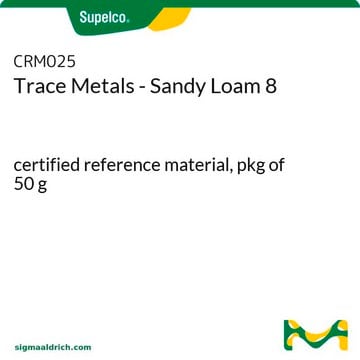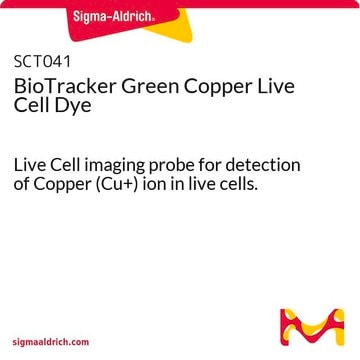MAK127
Copper Assay Kit
sufficient for 250 colorimetric tests
Sinónimos:
Copper Test Kit
About This Item
Productos recomendados
usage
sufficient for 250 colorimetric tests
detection method
colorimetric
relevant disease(s)
orthopedic diseases; aging/geriatric diseases; hematological disorder; gastrointestinal diseases; neurological disorders; dermatological diseases
storage temp.
2-8°C
Categorías relacionadas
General description
Application
Features and Benefits
Suitability
Principle
signalword
Danger
hcodes
Hazard Classifications
Aquatic Acute 1 - Aquatic Chronic 1 - Eye Dam. 1 - Met. Corr. 1 - Skin Corr. 1A - STOT SE 3
target_organs
Respiratory system
Storage Class
8B - Non-combustible corrosive hazardous materials
wgk_germany
WGK 3
flash_point_f
Not applicable
flash_point_c
Not applicable
Certificados de análisis (COA)
Busque Certificados de análisis (COA) introduciendo el número de lote del producto. Los números de lote se encuentran en la etiqueta del producto después de las palabras «Lot» o «Batch»
¿Ya tiene este producto?
Encuentre la documentación para los productos que ha comprado recientemente en la Biblioteca de documentos.
Nuestro equipo de científicos tiene experiencia en todas las áreas de investigación: Ciencias de la vida, Ciencia de los materiales, Síntesis química, Cromatografía, Analítica y muchas otras.
Póngase en contacto con el Servicio técnico










